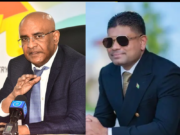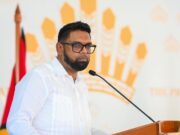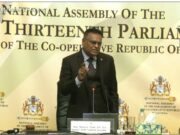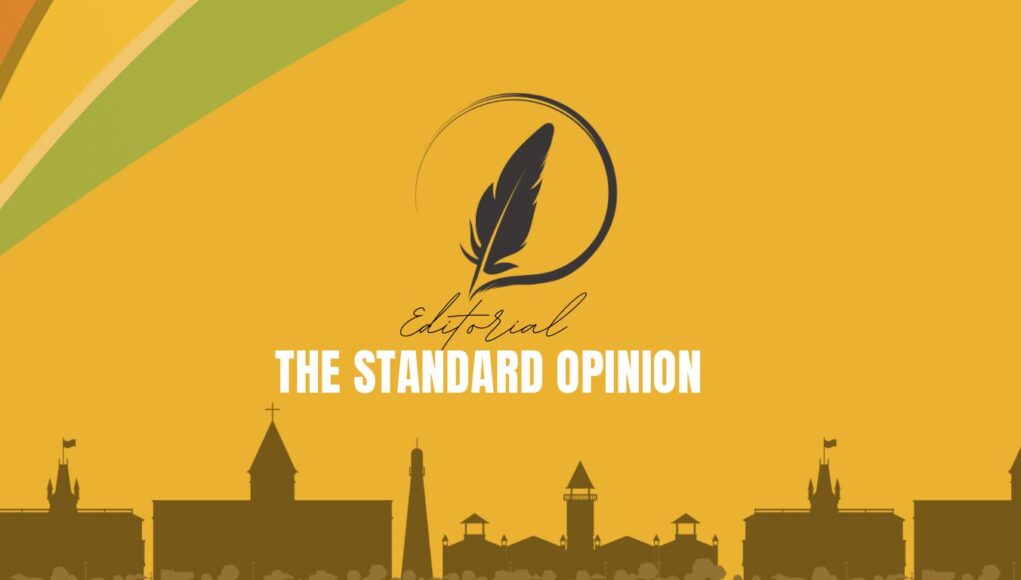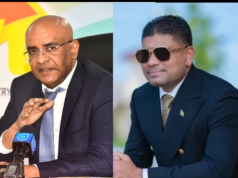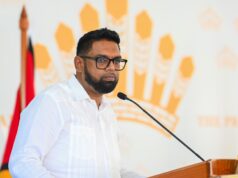History brims with examples of the powerful who succumb to the consequences of underestimating their rivals. The annals recall mighty kings undone by adversaries deemed weak, or the crumbling of age-old organisations at the hands of scoffed-at, downplayed threats. These tales all teach us a valuable lesson: in politics, as in war, never underestimate your opponent. Arrogance blinds, and underestimation almost always carries a price. Recent developments in Guyana have brought this truth into sharp relief. The 2025 General and Regional Elections will be remembered as a defining moment in our history.
The phenomenon that is the We Invest in Nationhood (WIN) party, which has been in existence for only three months, has managed to pull off what once seemed impossible. Brushed aside as a political now-come, it has risen to dethrone the mighty A Partnership for National Unity (APNU). At least this is according to the initial count done by the Guyana Elections Commission (GECOM).
Underestimation played a central role in APNU’s fall from grace in these elections. The party, like most political entities, initially dismissed the newly formed WIN party as a minor, inexperienced player. APNU appeared certain that its historical dominance would guarantee votes. This overconfidence bred complacency. It did not seem to take into account the effect that the WIN would have on its strongholds, or maybe it did.
APNU’s partner, the Working Peoples’ Alliance (WPA), was tasked with the sole responsibility of mobilizing its traditional support base. Still, there were clear signs that Mohamed’s party was gaining momentum in those territories.
Unfortunately, APNU failed to recalibrate its strategy and seek support beyond its traditional base. The party remained hopeful that its loyal supporters would return on election day. They did not. Notably, APNU was contending without the AFC, the same political party it had teamed up with in 2015 to win the elections.
This time, however, the two parties failed to reach an agreement, and all talks of a coalition were scrapped. APNU offered no clear strategy for capturing the votes that an AFC partnership might have delivered.
The results show the AFC fading into obscurity, challenging assumptions that a joint APNU-AFC effort could have defeated the PPP/C. Perhaps, it was this failure to coalesce that fueled voter disenchantment, driving some to support the WIN party.
Yet, APNU continued to sit comfortably, seemingly confident in its own strongholds. Because APNU did not take WIN seriously at first, its campaign was reactive rather than proactive. Criticisms were often too little, too late, allowing WIN to solidify its base.
On July 18, 2025, Norton was quoted by the Guyana Standard as dismissing WIN’s rise, attributing the support for the party to financial incentives rather than genuine political engagement. He suggested that people only supported Mohamed because they were motivated by money, implying that WIN’s backing was superficial and not based on substantive political ideology or leadership qualities. This stance led APNU to push for a ban on cellphones at polling stations.
The party argued that voters could photograph ballot papers and send them to those allegedly buying votes, as proof that their ballots had been cast in the buyers’ favour. That request was granted by GECOM. Still, the count shows supporters in APNU strongholds, including Albouystown, Mocha and Sophia, voting overwhelmingly for WIN. The town of Linden, an APNU fortress, was handed over by the people to WIN.
The PPP/C Perspective
Who could have believed that such a young movement could shake the foundations of Guyana’s political landscape? Who knew? Bharrat Jagdeo did—or at least so he claims.
At a press conference on Friday, he confirmed that his party foresaw this exact outcome. “It did not catch us by surprise. We saw it coming,” he declared.
But did they, really? Assuming that is the case, Jagdeo’s claimed far-sightedness contextualizes the copious attention that the party and its doyennes gave to WIN. Week after week, at his press conferences, Jagdeo took jabs at the WIN presidential candidate, Azruddin Mohamed, while downplaying WIN’s political rise.
He was even asked pointedly whether his frequent tongue-lashing of Mohamed contradicted the claim that the PPP/C was unconcerned about WIN’s entry into the political arena. Jagdeo flatly denied it. Yet, he continued his weekly scorching of Mohamed, questioning his suitability as a presidential candidate, frequently reminding the nation that the businessman is sanctioned by the U.S. Government.
Curiously, there was little emphasis on the fact that a high-ranking government official with close ties to the PPP/C, Mae Thomas, was also sanctioned. Being sanctioned by a global superpower could have provided ample grounds to critique Mohamed’s suitability as a presidential hopeful, but Jagdeo went further. Week after week, he questioned Mohamed’s sanity, scoffed at his academic capabilities, and criticized the quality of his candidates and leadership team.
On top of this, the General Secretary repeatedly highlighted what he called photoshopped images of inflated WIN rallies. He insisted that elections are not fought on social media, warning that WIN’s performance at the polls would ultimately expose the party as fabricating the appearance of large crowds and fighting a losing battle.
Jagdeo’s recent admission that his party “saw it coming” reveals the contradiction: while dismissing WIN as politically inexperienced, the PPP/C also clearly viewed it as an emerging force that required containment. This is contrary to APNU’s treatment of the party. While the APNU clearly suffered the most at the hands of WIN, the ruling PPP/C would be wise not to sit comfortably.
WIN’s meteoric rise signals something deeper: a hunger among the electorate for fresh voices and alternatives. If APNU could be dethroned in its strongholds, what prevents that same tide from one day reaching the gates of Freedom House? Some may argue that the PPP/C is too big to lose, but it lost in 2015.
Ironically, “too big to fail” was also APNU’s mantra heading into the polls. But let’s be real: a vast majority of Guyanese never imagined WIN could outperform APNU. What many expected to be just a handful of seats, may now become a couple, a couple of couples – an outcome few foresaw, but one that all political players must reckon with.
As for the APNU, it has a lot to think about. Chief among these questions is why so many of its supporters saw WIN as a better alternative.The 2025 elections in Guyana will be studied for years, not just for who won or lost, but for what they reveal about voter expectations, political complacency, and the dangers of underestimation.

